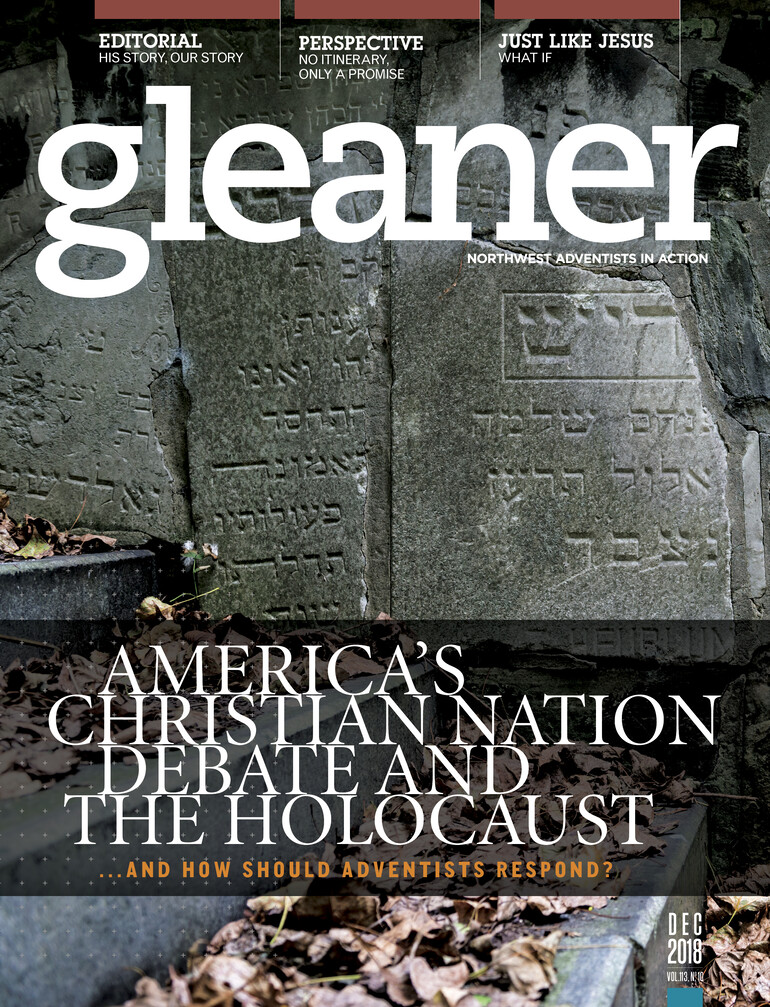Who’s afraid of a nursing infant? Herod, one of two despots in the Christmas story. The infamous ruler recognized in baby Jesus a genuine threat to his kingdom of coercion.
Foreign dignitaries had arrived from afar, inquiring the whereabouts of heaven’s royal child. Herod sensed trouble for his domain of darkness. He launched a plot mercifully thwarted: “Flee to Egypt,” God’s angels warned Joseph, so baby Jesus won’t be killed. Instead, Herod himself soon met his demise.
Now Bethlehem’s savior, meek and mild, came back home to Palestine. Nazareth was a nasty place to nurture the Messiah, yet Jesus emerged untainted and triumphant.
“Behold the Lamb of God,” the Baptist forerunner of the Advent proclaimed (John 1:29). The savior ascended from the Jordan River as God’s Spirit descended upon Him. At that moment Jesus officially became our Messiah, the anointed One (Acts 10:38).
When we today are baptized, it is not to “follow His example,” as we are admonished in well-intentioned but mistaken exhortations. Baptism into Christ means owning and embracing God’s Lamb as our personal Messiah. We thus exchange fallen Adam’s old humanity for our new identity in Christ. He is the “last Adam” (1 Cor. 15:45), head of a new human race — His church, God’s final remnant.
Following Christ’s baptism, the Spirit led Him into the wilderness to be tested by the devil. The enemy approached Jesus questioning His identity: “If you are the Son of God, prove it.” Jesus saw no need to prove anything to the devil, nor should we. “It is written” in Scripture is sufficient to assess and access Christ’s salvation.
Christus Victor
Having conquered the devil in the desert, Christus Victor came home to Nazareth and launched His ministry. That Sabbath day He proclaimed, “The Spirit of the Lord is upon Me, because He has anointed me to proclaim good news to the poor.” (Literally, to goodnewsify us!) Also “to proclaim liberty to the captives, and recovering of sight to the blind, to set at liberty those who are oppressed” (Luke 4:18).
“Set at liberty” inadequately translates apostello — the verbal form of “apostle.” Amazingly, God sends us forth as His apostles of liberty even as we suffer oppression — actually, “being crushed.” In other words, we don’t need personal accomplishment or human approval for God to send us forth among our friends and enemies as His vendors of liberating love. So if we are feeling crushed by present circumstances, God intends to use that trauma to enhance rather than diminish our ministry. This is equally true for women as for men.
What a beautiful inaugural message for Christ’s mission as Messiah! Yet the entrenched establishment refused to hail their hometown hero. Jesus was inclusive with heaven’s love and grace, which offended them. Those first-century sabbatarians imagined they controlled the synagogue with once-saved, always-saved status as God’s elite remnant. They flattered themselves as having an exclusive franchise on His truth. Yet so angry they became at their own Messiah that they tried to throw Him over the cliff outside the city, into the valley of Megiddo below. Jesus slipped away unscathed and unhindered. He survived to triumphantly declare at Calvary, “It is finished!”
The Other Despot of Christmas
Back to Herod now, the notorious despot — a word derived from the Greek “despotes.” Surprisingly, this is one of the names by which God describes Himself! How could this be?
Consider what “despot” means — having sufficient power to coerce compliance. No need to seek consensus. For the world, overwhelming power of a despot inevitably corrupts the community being governed. By contrast, God ordains and empowers us to serve without force or fear “that you, being rooted and grounded in love, may … know the love of Christ that surpasses knowledge, that you may be filled with all the fullness of God” (Eph. 3:17–19).
Following Christ’s victorious death and resurrection, His followers suffered continuing oppression. God heard the prayers of the Jerusalem church and paroled Peter and John. Triumphantly “they lifted their voices together to God and said, ‘Sovereign Lord [Despotes], who made the heaven and the earth ... to do whatever your hand and your plan had predestined to take place’” (Acts 4:24, 28).
Christus Victor came to this earth “that through death he might destroy the one who has the power of death, that is, the devil, and deliver all those who through fear of death were subject to lifelong slavery” (Heb. 2:14,15). Heaven’s Despotes of love sets us free!
You see, Herod wasn’t the only despot in the Christmas story. Simeon in the temple recognized in baby Jesus the eternally powerful Lord from heaven. So he announced, “Now I can die in peace, O Despotesa” (see Luke 2:29).
This Christmas we can acclaim liberation and empowerment in Christ. He came, He loved, and He conquered.










